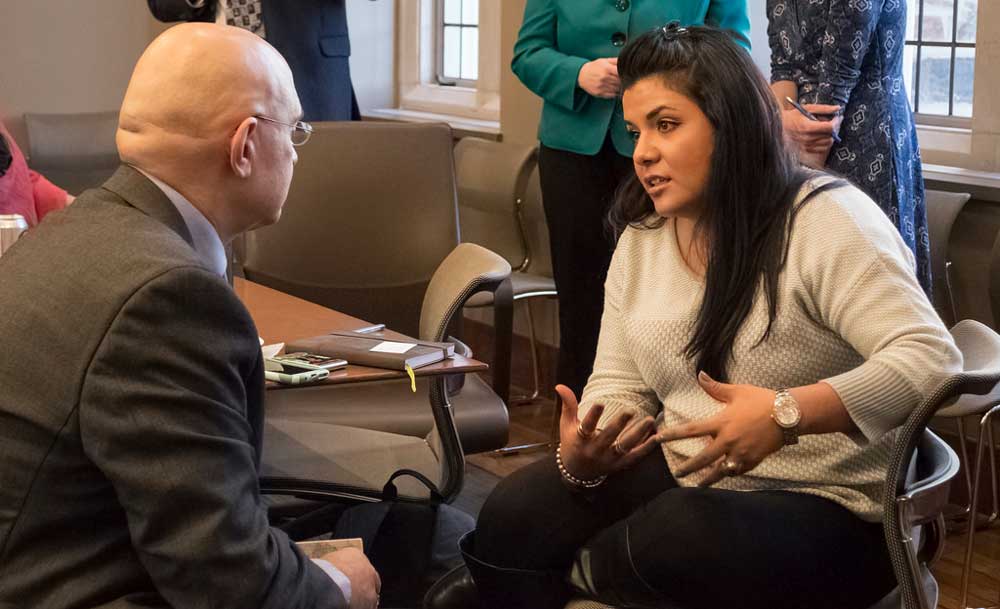By Edward Balleisen
Vice Provost for Interdisciplinary Studies

This is the second of three posts that offer advice on getting a good start in your time as a doctoral student at Duke. The first post laid out some of the many opportunities available to you beyond your department; this one considers the question of mentorship.
To find the right mix of mentors, you have to figure out the style of intellectual engagement that works best for you. Odds are that you will arrive at Duke with a decent sense of whom your primary departmental supervisor will be—that’s the way things tend to work in the humanities and interpretive social sciences. For many of you, that expectation will turn out to be correct. For others, a shift in intellectual focus, recognition of unexpected personality conflicts, or the arrival of a new faculty member may alter your calculations about the best individual to take the primary role in guiding your research. Either way, there are several things you can do to find the advising that works best for you.
First, look to develop relationships with multiple mentors. Few individuals can provide guidance on every important question that you will face in the next five to seven years, as you think through an intellectual agenda, choose courses and co-curricular activities, develop a dissertation topic, gain classroom experience, carry out research, apply for fellowships and possibly internships, turn research findings and analysis into prose, perhaps begin to publish, clarify career aspirations, and undertake a potentially multi-pronged job search. It often helps to get more than one perspective on an issue.
Such an approach, of course, starts with getting to know faculty members in your department (including your director of graduate studies), departmental administrative staff, and grad students further along in the program. For many doctoral students, it also proves enormously helpful to find additional sounding boards elsewhere in the university. Maria LaMonaca Wisdom, the director of graduate student advising and engagement in the humanities, can both play this role directly and suggest other faculty members and academic professionals with whom it may make sense for you to meet. Remember, however, that reaching out to these additional voices is up to you. A great deal of professional development depends on cultivating the skills to make such contacts, whether for one-time conversations or as a foundation for longer-term connections.
Second, look for mentorship among peers as well as faculty. Other Ph.D. students have a wealth of knowledge about how to navigate departmental requirements, locate sources of funding, and pursue intellectual interests beyond your already existing comfort zones. They also may have greater awareness than some faculty about new skills workshops or emerging intellectual communities on campus.
Third, give careful thought to what sort of mentoring works best for you. This question is especially important in developing a constructive relationship with your primary dissertation adviser (or co-advisers). Faculty members have different styles of engagement. Some are open to, and may even expect, frequent interaction; others exercise a lighter touch. Professors also vary in the sorts of research and pedagogical training that they wish to provide. Some feel more comfortable advising students whom they see as working clearly within the confines of their own research expertise, or may have a preference for disciplinary projects. Others range far more widely in the topics that they will supervise, and may prove more open to experimentation in method or mode of argumentation. Be alert to these differences, and think through what meshes best with your own personality and intellectual approach.
Finally, remain attuned to the benefits of serving as a mentor yourself. You can expect to have many opportunities to take on this role during your time at Duke, whether with undergraduates, peers, or even faculty. We all have comparative advantages and distinctive experience and expertise. Cultivating the ability to be an effective sounding board and interlocutor generally improves one’s capacity to seek out advice and build networks; it also deepens our sense of community.
The Graduate School website offers additional guidance around mentoring. See their resource page for graduate students, as well as the page that lays out “Best Practices and Core Expectations” for doctoral programs, faculty, and grad students.
